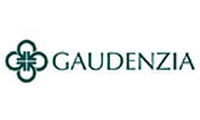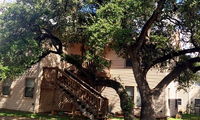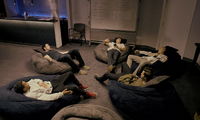Obsessive-Compulsive Disorder Treatment
 Obsessive-compulsive disorder (OCD) is a common mental illness that affects children, teenagers, and adults around the world. Unlike many adults, though, younger children will struggle to recognize that their obsessions and compulsions are unnecessary or extreme [2]. OCD typically includes both obsessive and compulsive patterns that cause mild to severe anxiety for an individual. Obsessive patterns include recurring thoughts that are unwanted urges. Ultimately, these obsessions lead to uncontrollable repetitive behaviors (compulsions) that prevent an individual from living a normal life by affecting his or her social interactions and daily activities – sometimes so severe symptoms become disabling.
Obsessive-compulsive disorder (OCD) is a common mental illness that affects children, teenagers, and adults around the world. Unlike many adults, though, younger children will struggle to recognize that their obsessions and compulsions are unnecessary or extreme [2]. OCD typically includes both obsessive and compulsive patterns that cause mild to severe anxiety for an individual. Obsessive patterns include recurring thoughts that are unwanted urges. Ultimately, these obsessions lead to uncontrollable repetitive behaviors (compulsions) that prevent an individual from living a normal life by affecting his or her social interactions and daily activities – sometimes so severe symptoms become disabling.
An individual with OCD may find themselves trying to ignore his or her obsession, but will only find an increase in anxiety levels until the compulsive act is performed. Despite efforts to control these obsessions, these urges will continue to reoccur – leading to a more ritualistic behavior.
For example, having a strong desire to reorganize items on a bookshelf until feeling “just right” – an individual may find themselves rearranging for countless hours to ease his or her distress.
Obsessive Themes and Symptoms
The obsessive-compulsive disorder usually includes both obsessions and compulsions, but it's also possible to only have either one. However, both symptoms typically progress gradually with teens and worsen throughout adulthood if left untreated by a medical professional. In fact, of adults with OCD in the past year, approximately one half (50.6 percent) had had serious impairment [1].
Obsessive symptoms have a wide range of themes that cause unwanted urges and anxiety. Obsession themes and symptoms an individual may experience include:
- Fear of contamination of germs or toxins in the environment
- Strong desire to reorganize objects
- Disturbing thoughts about physically harming oneself or others
- Unpleasant thoughts, including sexual assault or inappropriate sexual acts
- Fear of forgetting or losing something
Compulsion Themes and Symptoms
In order to lower stress and anxiety levels created by obsessions, individuals with OCD engage in compulsions (repetitive behaviors) or mental acts – which tend to be excessive and time-consuming. In fact, those with OCD are likely to include family members in their rituals and can be highly demanding – leading to disruptive and oppositional behavior and even episodes of rage [2].
Similar to obsessions, compulsions typically have these themes and symptoms, as well:
- Cleaning and washing to cope with the fear of contamination, some will spend countless hours washing their body and cleaning their surrounding environment
- Checking to lower fears of forgetting something or harming oneself, some will repeatedly check door locks to ensure they are securely locked.
- Counting to reduce anxiety some count patterns like steps
- Orderliness to have things symmetrical, some will spend hours to have items face the same way to reduce discomfort
- Mental compulsions to cope with unpleasant thoughts, some individuals silently pray or say phrases with the intention of avoiding harm if they do so
Treatment for OCD
There is no cure for the obsessive-compulsive disorder, however, treatment will help with controlling the symptoms and significantly reduce anxiety, so it doesn’t interfere with daily activities. Today, there are two main options for treating OCD – making it highly manageable so individuals can continue to attend work, school, and enjoy healthy relationships.
Cognitive Therapy
Cognitive-behavior therapy (CBT) can be highly effective for many OCD patients and reduce their obsessive and compulsive symptoms. However, treatment only works if patients agree to face their fears. Some patients will not agree to follow along in cognitive-behavioral therapy because of the level of anxiety it involves.
During treatment, patients are exposed to situations that trigger their obsessions and are instructed to refrain from compulsive behavior – causing mild to extreme discomfort for the individual. However, through this CBT technique own as exposure and response prevention (ERP), the patients learn how to control their symptoms and (or) sometimes stop their compulsive behaviors.
Cognitive-behavior therapy can take place with individual or group sessions.
Medication for OCD
A doctor may prescribe other antidepressants and psychiatric medications; however, here are the most commonly used to control obsessive and compulsive symptoms– which are approved by the Food and Drug Administration (FDA):
- Clomipramine (Anafranil)
- Fluoxetine (Prozac)
- Paroxetine (Paxil, Pexeva)
- Sertraline (Zoloft)
Inpatient vs. Residential Treatment Centers
For individuals who are experiencing mild OCD symptoms, there are inpatient treatment centers available – which usually last up to 7 to 10 days. These programs are different than residential centers and are designed to focus on crisis interventions for a short period of time.
However, for individuals who have intense OCD symptoms and are suffering from extreme anxiety, there are residential programs available. This type of treatment center is focused on providing intensive cognitive behavior therapy. Typically those who stay at these residential centers will stay for a longer duration which is 6 to 8 weeks. During the treatment, individual will have daily exposure to their obsessive symptoms and coached on how to respond to their urges.
What Happens If OCD is Left Untreated?
There are many cases of individuals with severe OCD symptoms that consider killing themselves. In fact, about 1 percent die by suicide each year. If left untreated, it can OCD symptoms can worsen and affect an individual's relationships, social interactions, career, and sometimes overall health. For example, those with fear of germs will excessively wash their hands to the point their skin becomes dry and forms scabs. When it becomes this extreme, individual health can be at stake.
How to Help A Loved One Who is Suffering From OCD?
To help support a loved one struggling with obsessive-compulsive disorder, it is recommended to encourage that individual to seek treatment. Typically, an individual may be embarrassed and try to isolate themselves as a way to hide their compulsive habit(s). It is important for family members to educate themselves about OCD and monitor behavioral changes that seem unusual in an individual's day to day activities. Although loved ones may feel frustrated and the need to enable an individual's rituals, it is important to be open-minded and patient with those suffering from OCD.
References
[1] Harvard Medical School, 2007. National Comorbidity Survey (NCSSC). (2017, August 21). Retrieved from https://www.hcp.med.harvard.edu/ncs/index.php. Data Table 2: 12-month prevalence DSM-IV/WMH-CIDI disorders by sex and cohort.
[2] Storch EA, Jones AM, Lack CW, Ale CM, Sulkowski ML, Lewin AB, De Nadai AS, Murphy TK. Rage attacks in pediatric obsessive-compulsive disorder: phenomenology and clinical correlates. J Am Acad Child Adolesc Psychiatry. 2012;51:582–592. [PubMed]









